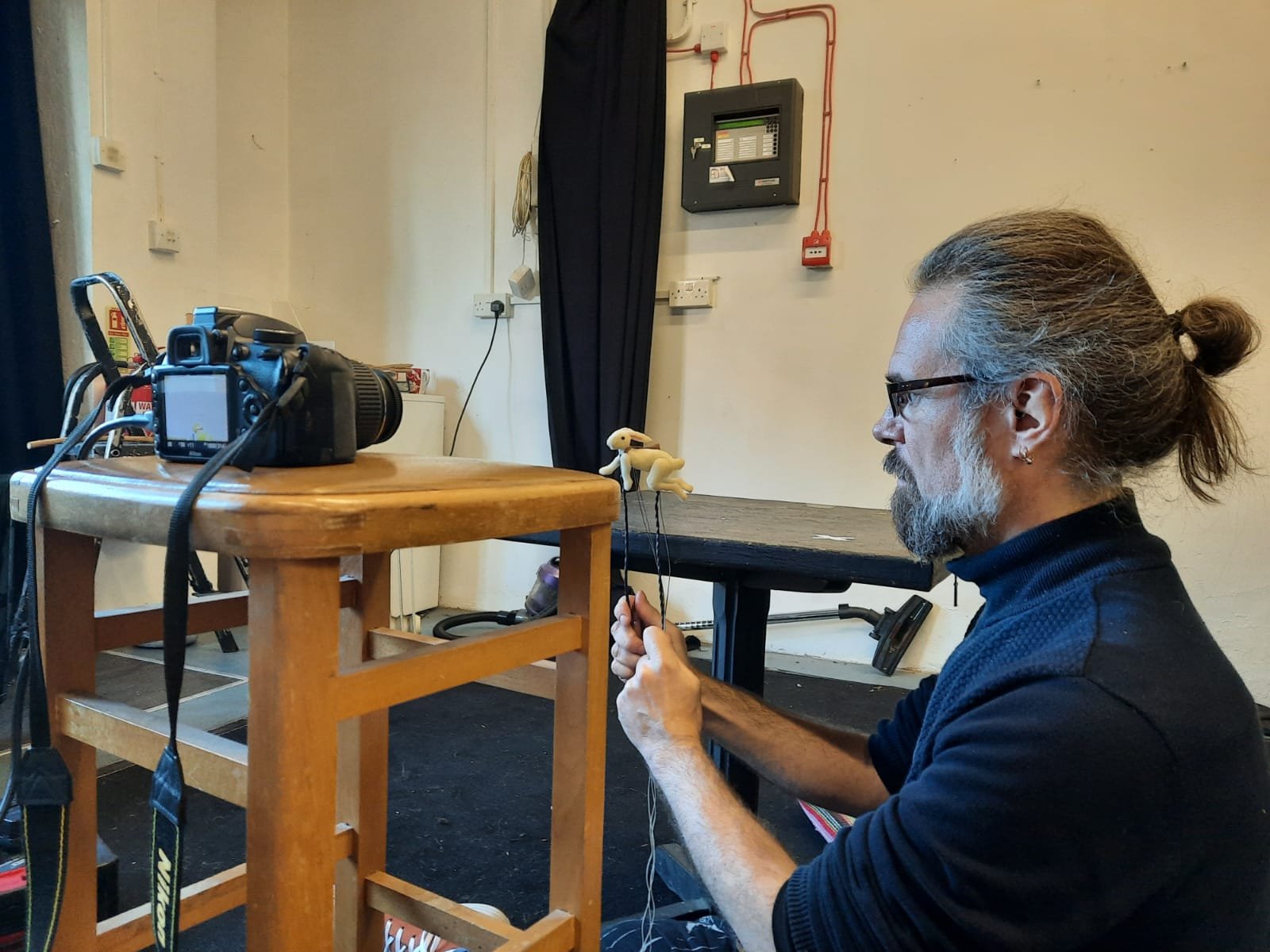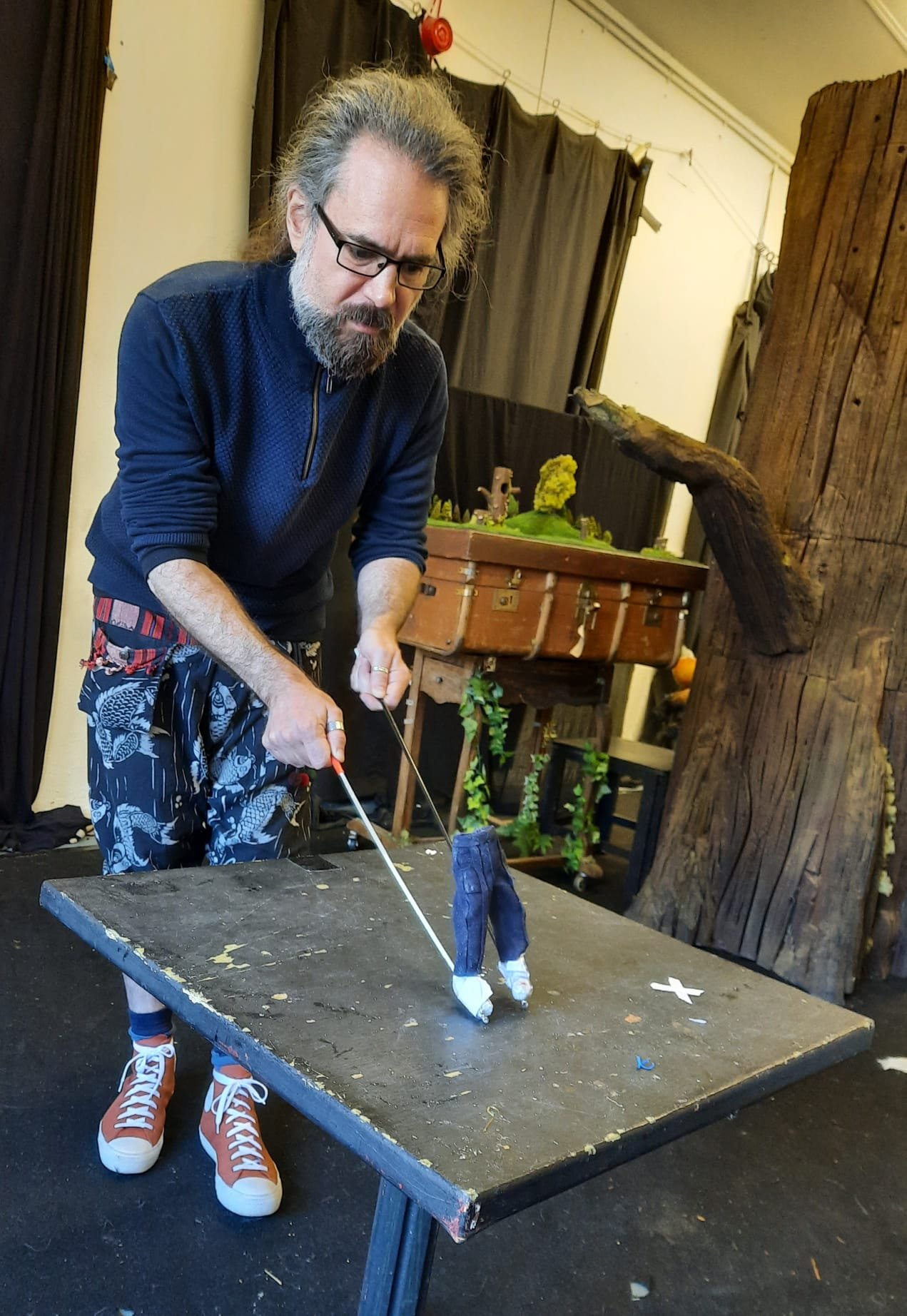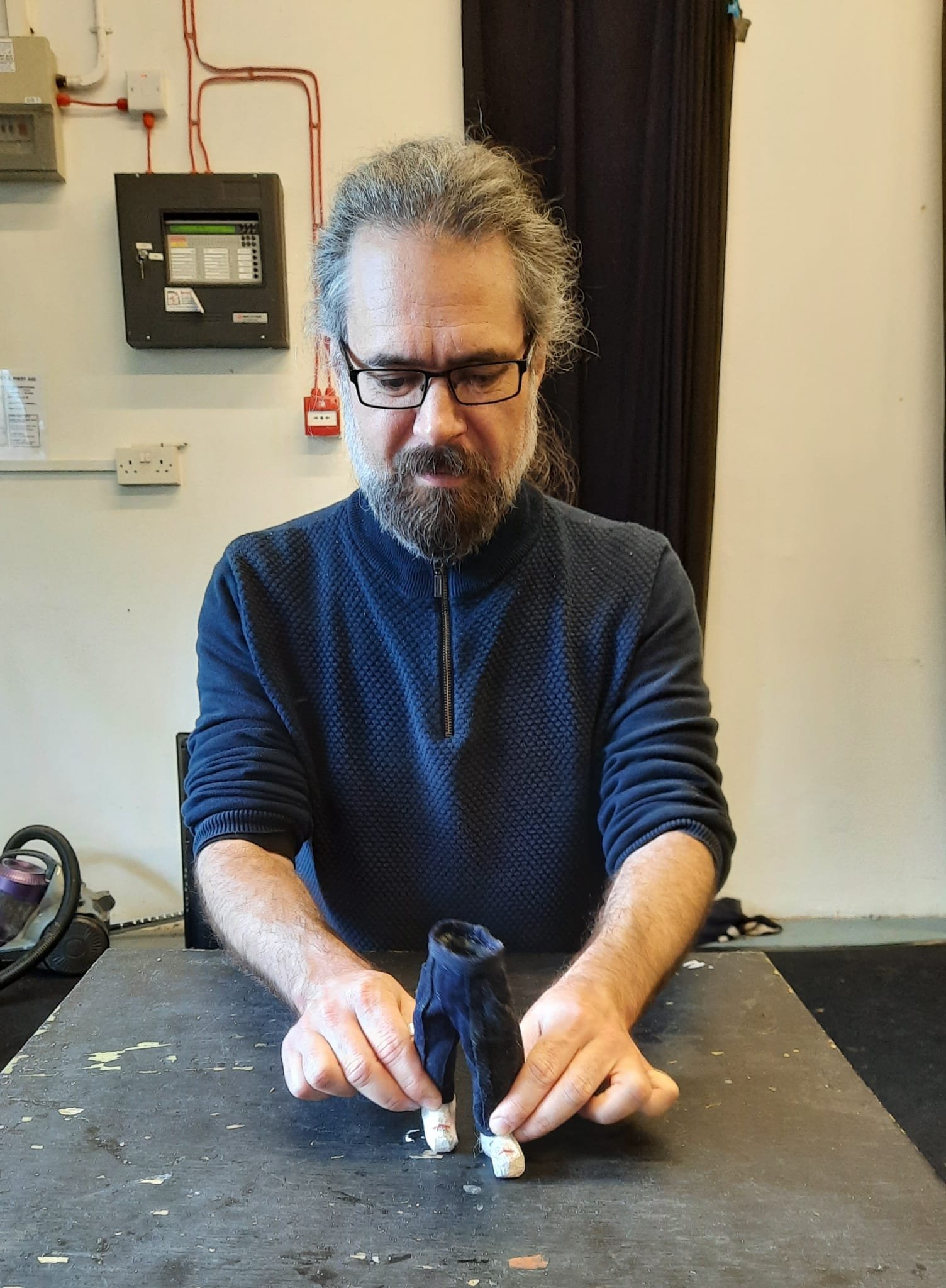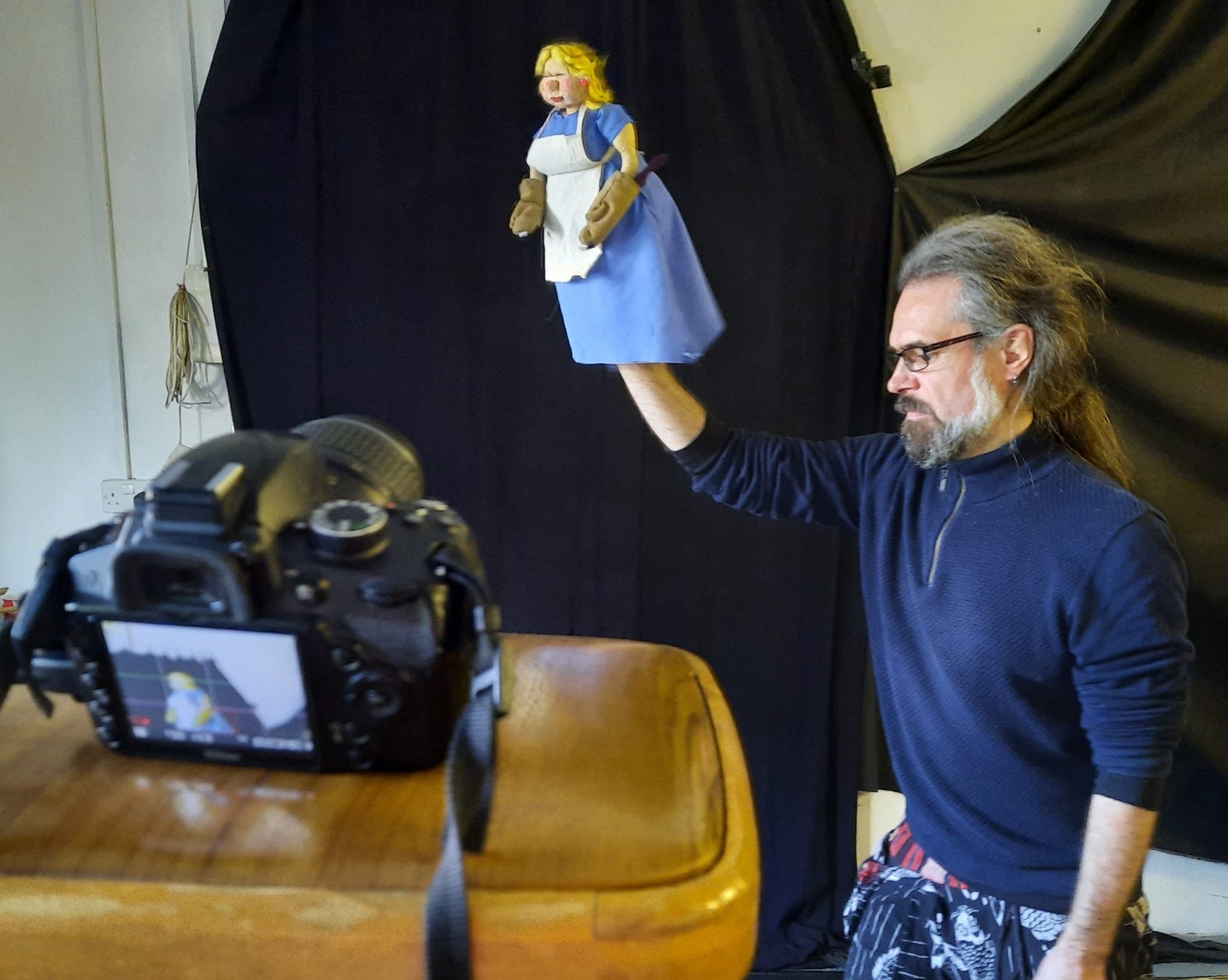“Why puppets?”
One question that all of my mentors, Cat Rock (House of Funny Noises), Chris Pirie (Green Ginger), and Elizabeth Johnson (Elizabeth Johnson Makes), posed in some form or another across my DYCP was, “Why puppets?”
As far as questions go, especially with my focus being to expand my knowledge of puppetry to better write for it and theatre, it is probably the most important.
It can be viewed in a number of ways, but the two most relevant to me are “Why puppets, instead of actors?” and “Why do you want to write for puppets?” The second question is perhaps easier for me to answer, but let’s start with the first.
I think it comes back to a sense of wonder, magic, and belief. What I discovered from my mentors is that there is something inherently playful and universally understood in bringing a puppet or an object to life, something that transcends language and speaks to the child in us all.
It creates a safe space that makes the puppet utterly relatable, yet potentially challenging; we can see ourselves in the puppet, while at the same time having a safety cushion to explore complex topics, such as love and loss, death and grief, etc. As an audience witnessing puppetry, we lower our walls and meet the puppet halfway - become complicit in the act of bringing it to life with the puppeteer and therefore become invested ourselves.
Actors, musicians, and performers can all conjure such liminal spaces with the audience, but puppets seem to jump right to the heart of that inner child in us. They can be fun or scary, comedic or tragic, but they always seem to embody us.
Being more practical, puppets enable performance that might be impossible or at least very expensive to do with actors or special effects. A puppet can be an astronaut and defy gravity, transform into a bird and take flight, or step into the air and walk into the sky.
Both Cat and Chris took me on an exploration of those possibilities in their workshops; Cat guiding me through puppeteering a disembodied pair of legs (Bishop’s legs from the HoFN short film Queen Takes Bishop), walking on invisible steps into the sky or swimming through the depths, while Chris let me puppeteer his Intronauts, exploring and flying through (Inner) Space.
The answer is that puppets can do things that actors cannot, especially on stage, but more importantly they can act as metaphors, facets, and cyphers for the human condition, allowing us to explore ourselves and the world in a safe and playful way that encourages wonder.
And in that context, why wouldn’t I want to write for puppetry?
But to answer the second question fully, puppetry has always fascinated and delighted me with its ability to hold a mirror to the World and do so in a safe fashion. It can make the magical possible, and the possible magical. As a writer, being able to see different perspectives, to understand, sympathise, and empathise with different points of view is essential, and puppetry offers a whole new range of lenses to do so for me.




